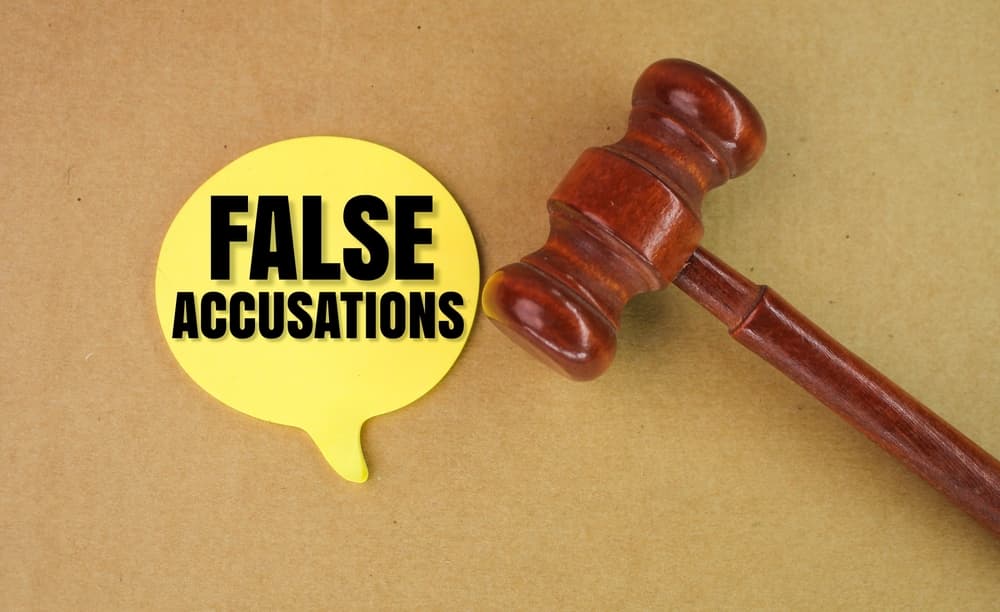Being accused of shoplifting can be a scary and stressful situation. Shoplifting, also known as petty theft, is treated as a criminal offense in California. Even if you didn't mean to shoplift, you could face serious consequences like fines or jail time if convicted. That's why it's wise to understand your rights and options for defending against shoplifting charges.
Below, a California criminal defense lawyer explains:
- What shoplifting is under California law
- The potential penalties you can face
- Some common legal defenses that may fight the charges
We'll also discuss when you should consider hiring a California criminal defense lawyer to represent you.
What is Shoplifting Under California Law?

Under California Penal Code 459.5 PC, entering an open business to steal merchandise worth $950 or less is defined as shoplifting. Some common examples of shoplifting include:
Concealing Merchandise
One of the most common tactics would-be shoplifters use is concealing unpaid merchandise before attempting to exit the store premises. This can involve transferring items into bags, purses, clothing pockets, or underneath layers of outerwear like bulky coats or sweaters.
The key element is that the individual takes affirmative steps to hide or disguise the presence of store inventory on their person with the clear intent of smuggling it out without rendering payment. Merely placing an item into a bag or cart is likely insufficient evidence of concealment absent additional furtive acts.
Prosecutors may argue that such calculated efforts to mask stolen property from view provide compelling proof of the defendant's criminal intentions and consciousness of guilt. However, defense counsel can counter by raising potential innocent explanations for why the merchandise was not visible, such as absent-mindedness or mistaken beliefs about permission to handle it that way.
Removing Price Tags
Another common shoplifting tactic is the willful removal of pricing tags or stickers. By depriving the item of any price markings, the hope is to circumvent automated checkout scanners and create plausible deniability to simply walk out without paying.
Alternatively, some individuals intend to feign ignorance of the item's value and negotiate an artificially low price once they discover the lack of visible pricing. In certain cases, an individual may even apply new, incorrect pricing stickers obtained from other merchandise to intentionally underpay.
However, not all price tag removal automatically implies intent to shoplift. The defense may provide benign explanations like attempts to protect packaging, tags inadvertently falling off, or misunderstandings if explicit store policies allow reusable bag use without visible pricing. Without further incriminating conduct, tag removal alone may not prove premeditated shoplifting plans.
Switching Price Tags
Similar to removing legitimate price tags, some shoplifters will switch out existing pricing markers with lower-cost stickers from other merchandise. The intended effect is for the item to ring up at a deflated price point during checkout. This allows the thief to only pay a fraction of the true value.
This form of shoplifting can enable enormous cost savings if executed successfully, particularly when dealing with higher-valued goods.
From a defense perspective, stores can potentially argue that policy failures led to unsecured pricing labels or allowed liberal switching, leading to misunderstandings. However, prosecutors will dispute any such claims if there is evidence of intentional mislabeling on the defendant's part.
Passing Final Point of Purchase
The most brazenly open tactic is to simply carry or push merchandise fully out of a store's defined cash-wrap area and final point-of-sale terminal without any payment attempt. This turns the store into a free-for-all once customers exit the register areas.
In these situations, merchants can actively enforce that customers settle payment for all merchandise before crossing certain sale boundaries. Simply ignoring or disregarding those demarcations with unpaid goods can be construed as an outright admission of intent to steal by the defendant.
Unless there's strong evidence of reasons for confusion or mistakes about checkout, it may be hard to counter accusations of purposeful shoplifting. This is especially true when merchandise is blatantly taken past final sale points with no payment attempt. You need a skilled California criminal defense lawyer to uncover unique mitigating defenses.
Potential Penalties for Shoplifting

The penalties you may face for a shoplifting conviction depend on factors like the value of the merchandise taken and your criminal history. It's crucial to understand these consequences and take appropriate action.
Petty theft as an Infraction (Less than $950 Value)
For first-time petty theft offenses involving merchandise valued at less than $950, authorities will likely charge you with an infraction. An infraction is a minor crime. It does not result in jail time, but you may have to pay a fine of up to $250 plus penalty assessments.
Petty theft as a Misdemeanor (Less than $950 Value)
Authorities can charge petty theft as a misdemeanor for merchandise under $950 if you have prior theft convictions or if the offense involved significant extenuating circumstances. Misdemeanor penalties include:
- Up to six months in county jail
- A maximum $1,000 fine
- Probation
Grand Theft (Over $950 Value)
If the value of the merchandise is over $950, you'll likely face grand theft charges. Grand theft of property worth more than $950 is a "wobbler" offense in California. Depending on the circumstances and your criminal history, authorities may charge it as either a misdemeanor or a felony.
You may face up to one year in county jail if charged with a misdemeanor. If it's charged as a felony, authorities can sentence you to 16 months, two years, or three years in county jail.
Possible Legal Defenses Against Shoplifting Charges
You may have a valid legal defense even if you took merchandise without paying. Some common defenses include:
Lack of Intent

To be convicted of shoplifting, the prosecutor must prove you entered the store with the specific intent to steal merchandise. If you simply forgot to pay or didn't intend to steal, your lawyer may argue you lacked the criminal intent.
Claim of Right
The right defense claim applies if you believe you have the right to take the merchandise. For example, if you owned a similar item and mistakenly took the store's item, thinking it was yours.
Entrapment
While relatively rare, there are some situations where a defendant may have a valid entrapment defense against shoplifting charges. Entrapment applies when a law enforcement officer or someone acting under police direction, like a store security guard, takes overbearing and persuasive actions that induce you to commit a crime you otherwise would not have committed.
For the entrapment defense to apply, the encouragement or directives of the officer/agent must have directly prompted your criminal conduct. Merely having the opportunity to commit the crime is not enough to constitute entrapment. There must be proof that you were intentionally lured, pressured, harassed, or intimidated into shoplifting.
Some examples where entrapment can potentially apply in a shoplifting case include:
- A store employee repeatedly insisted and coerced a customer to conceal merchandise because it was part of an "integrity shopping" test or training exercise.
- An undercover security officer aggressively prodded and taunted a customer to shoplift by claiming "everybody does it" and that the store had lax security.
- A store manager suggests and coaches customers on ways to get around anti-theft devices and slip out with unpaid merchandise.
The defendant's predisposition is a key factor for entrapment to serve as a valid legal defense. The defense will likely fail if the evidence shows that the defendant had a pre-existing inclination toward shoplifting, regardless of persuasion. But if it's clear that law enforcement or store personnel created and instigated the criminal plan through coercive means, then the defense may convince a judge to dismiss the charges.
The entrapment defense only potentially applies to law enforcement involvement or direction behind the coercive conduct. If a store employee acted entirely to induce shoplifting, that would not meet the legal criteria for entrapment as a defense. However, such conduct can open the retailer up to other civil claims.
Raising an entrapment defense requires representation from a skilled California criminal lawyer. You must gather and present clear evidence. The evidence must show that you were not predisposed to shoplift. You must show that law enforcement pressured and manipulated you into doing so. When proven, authorities may drop the charges.
False Accusations

In some shoplifting cases, the accusations made against the defendant are simply mistaken or based on unreliable evidence. Store employees may have been overzealous, held biases, or made mistakes in observing or detaining the accused person. If the prosecution's case rests primarily on the testimony of store staff with no corroborating evidence like clear video footage or recovered merchandise, an experienced lawyer can get the charges dropped entirely.
When shoplifting charges stem from a case of mistaken identity, tainted eyewitness identifications, or even intentionally false accusations made by store employees or security guards, you need to have legal representation. A California defense attorney can investigate the alleged incident's circumstances and evidence.
A lawyer can demonstrate reasonable doubt by:
- Poking holes in the credibility of witness testimony
- Highlighting inconsistencies or lack of concrete proof
- Presenting alibis or other exculpatory evidence that shows you could not have committed the shoplifting offense
Particularly in high-profile incidents that drew significant public attention, attorneys may locate additional witnesses whose accounts counter the official narrative.
Your lawyer will grill the prosecution's witnesses during cross-examination on issues like:
- Poor lighting conditions
- Obstructed sightlines
- Inconsistent descriptions of the suspect
- Compromised surveillance footage
- Any other factors that undermine confidence in the identifications and accusations made.
If successful, these tactics can lead judges to exclude critical evidence as inadmissible.
In the absence of direct evidence definitively linking you to the shoplifting incident, your defense attorney can make a strong argument that the prosecution has failed to meet its high burden of proving guilt beyond a reasonable doubt based solely on conflicting eyewitness accounts and circumstantial evidence. This may result in reduced charges or even completely dismissed before the case proceeds to trial.
If a shoplifting case boils down to a "he said-she said" dispute between you and store employees, with no smoking gun proof like high-quality video capturing the incident, an experienced lawyer giving an aggressive defense has a plausible path to creating sufficient reasonable doubt to secure a full acquittal.
When to Hire a Lawyer for Shoplifting Charges
While you aren't required to have a lawyer for shoplifting charges, having experienced legal representation is highly recommended. This is especially the case if you're facing misdemeanor or felony charges.
A skilled criminal defense lawyer can thoroughly evaluate the facts of your case to identify all possible defenses. They can then:
- Advocate forcefully on your behalf
- Negotiate with the prosecutor for reduced charges or penalties
- Take your case to trial if necessary to protect your rights
Even if authorities catch you shoplifting "red-handed," a lawyer can help mitigate the consequences by highlighting mitigating circumstances, requesting diversion for first-time offenders, or arguing for a lighter sentence.
Don't Take Chances - Contact a California Criminal Defense Lawyer

While shoplifting may not seem like a huge deal, the penalties for a conviction can have lasting impacts. You may have difficulty finding employment or housing. Rather than risking fines, probation, or jail time by representing yourself, your best option is to have an experienced California criminal defense attorney handle your shoplifting case.
A good lawyer will:
- Thoroughly investigate all circumstances around the incident
- Advise you of your rights and options
- Develop a strong defense strategy tailored to your situation and goals
Challenges aren't roadblocks but rather opportunities for growth and refinement. You can navigate these hurdles with the right legal defense, potentially reducing or dismissing the charges altogether.
If you or a loved one faces accusations of shoplifting in California, don't delay. Contact a Chudnovsky Law firm right away to start building your defense. The sooner you have legal representation, the better your chances of obtaining a favorable outcome in your shoplifting case. A skilled attorney can assess the details of your situation, advise you on your rights, and work toward resolving the matter effectively.